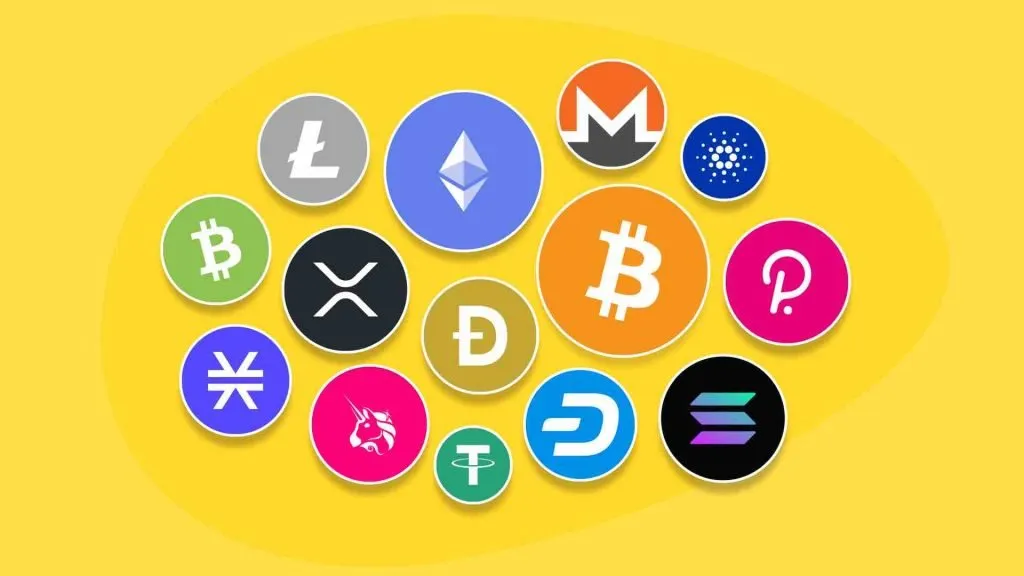Cryptocurrency has revolutionized the way we think about money. While Bitcoin is the most well-known and widely used digital currency, there are thousands of other cryptocurrencies, known as altcoins, that have been introduced since Bitcoin’s rise. But how do you decide which one is right for you? Let’s break down the differences between Bitcoin and altcoins and explore their unique features, helping you make an informed decision.

What is Bitcoin?
Bitcoin is the first-ever cryptocurrency, created in 2009 by an anonymous person or group known as Satoshi Nakamoto. It was designed as a decentralized digital currency without the need for a central authority like a bank. Bitcoin transactions are verified by a network of computers (called miners) and recorded on a public ledger known as the blockchain.
Bitcoin has earned a reputation as a “store of value” and is often referred to as “digital gold.” Many investors view it as a safe bet in the cryptocurrency space due to its market dominance, historical performance, and broad acceptance. It’s also considered relatively stable compared to other cryptocurrencies, making it a popular choice for long-term investors.
However, Bitcoin’s scalability issues and slower transaction times can be drawbacks for those looking for faster or cheaper transaction methods. Bitcoin transactions are also subject to higher fees, especially during periods of high network activity.
What are Altcoins?
Altcoins refer to any cryptocurrency other than Bitcoin. The term “altcoin” is a combination of “alternative” and “coin.” There are thousands of altcoins, each with its own features and potential use cases. Some of the most popular altcoins include Ethereum, Ripple (XRP), Litecoin, and Cardano.
While Bitcoin is focused on being a peer-to-peer digital currency, many altcoins were created to improve upon Bitcoin’s limitations. For example, Ethereum allows for smart contracts, enabling decentralized applications (DApps) to run on its blockchain. Other altcoins, like Litecoin, focus on faster transaction speeds, and Ripple aims to improve international payments for financial institutions.
Altcoins often provide more innovative features, such as faster transaction speeds, lower fees, and the ability to support various decentralized applications. However, altcoins can be more volatile than Bitcoin, and some are less established or riskier investments. Many altcoins are still in the experimental stages, so their future is uncertain.

The Pros and Cons of Bitcoin vs. Altcoins
Bitcoin Pros:
- Market leader with the largest market cap.
- High liquidity, making it easy to buy and sell.
- Trusted and widely accepted by merchants and investors.
- Seen as a “safe” cryptocurrency due to its historical performance.
Bitcoin Cons:
- Slow transaction times and high fees during peak times.
- Limited functionality compared to some altcoins (e.g., no smart contracts).
- Scalability issues as Bitcoin grows.
Altcoins Pros:
- Faster transactions with lower fees for many altcoins.
- Greater diversity in features, such as decentralized applications and smart contracts.
- Some altcoins are cheaper to buy and have higher growth potential.
Altcoins Cons:
- Greater price volatility compared to Bitcoin.
- Some altcoins are still experimental or unproven in the market.
- Less liquidity compared to Bitcoin, making it harder to buy and sell in large amounts.
Which Cryptocurrency Should You Choose?
Your decision to invest in Bitcoin or an altcoin will depend on your goals and risk tolerance.
- If you’re looking for stability: Bitcoin might be the right choice. It’s the oldest and most widely recognized cryptocurrency, making it a relatively safe option for long-term investments.
- If you want more innovation: Altcoins could offer what you’re looking for. With their unique features and fast-growing ecosystems, altcoins like Ethereum, Solana, or Polkadot present exciting opportunities for those interested in decentralized finance, NFTs, and smart contracts.
- If you want to diversify: Many investors choose to hold both Bitcoin and a selection of altcoins. This strategy allows them to benefit from the stability of Bitcoin while taking advantage of the growth potential in altcoins.
The Future of Bitcoin vs. Altcoins
The future of both Bitcoin and altcoins seems promising, but each comes with its own set of challenges. Bitcoin is likely to continue leading the cryptocurrency market in terms of adoption and store-of-value status, but its slow transaction speeds may make it less suitable for daily use.
On the other hand, altcoins have the potential to disrupt various industries by offering faster transaction speeds, lower fees, and decentralized applications. However, the long-term success of altcoins depends on their ability to scale and gain widespread adoption.
Both Bitcoin and altcoins are likely to play significant roles in the future of digital finance, and understanding their differences can help you make the right choice based on your needs and investment goals.

